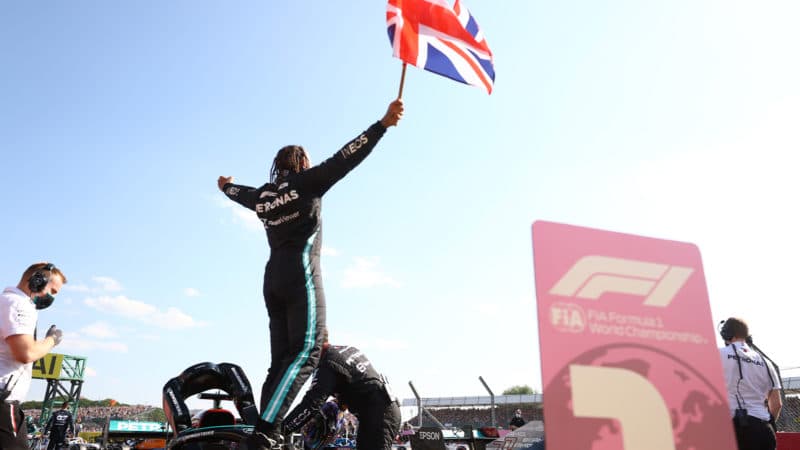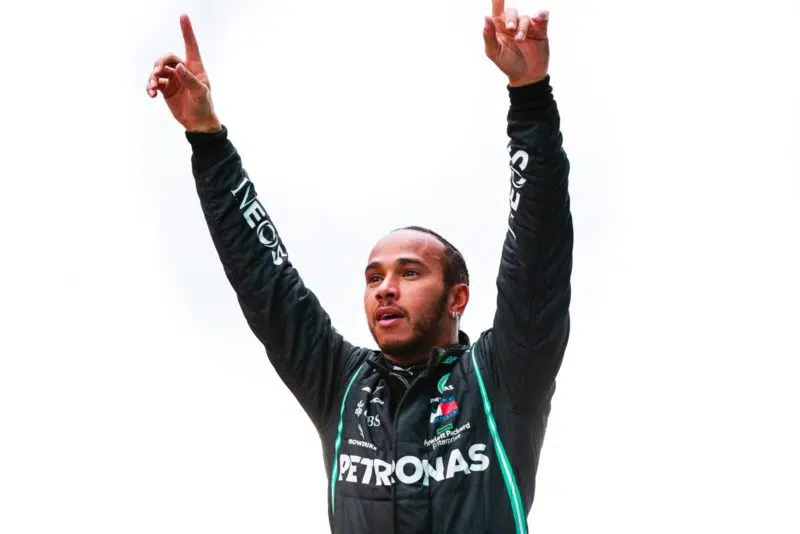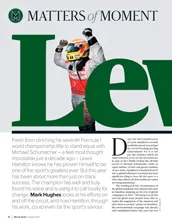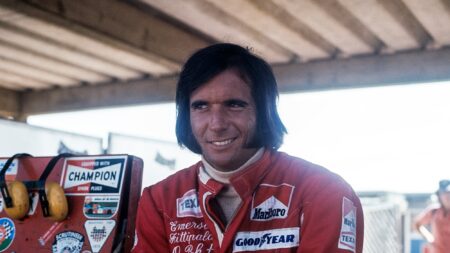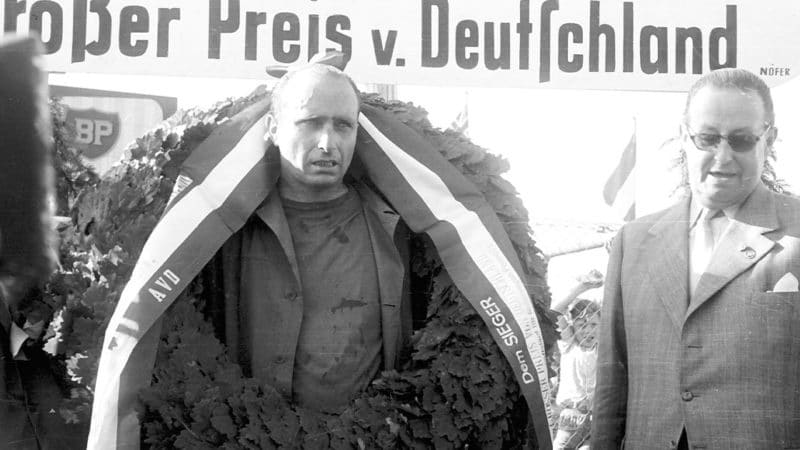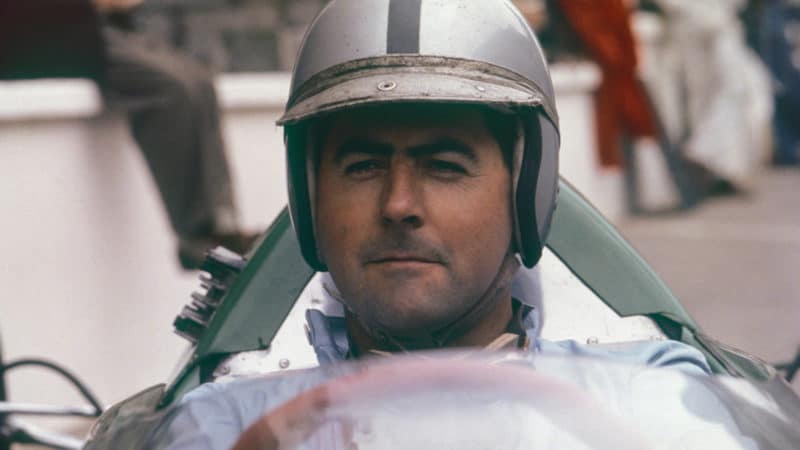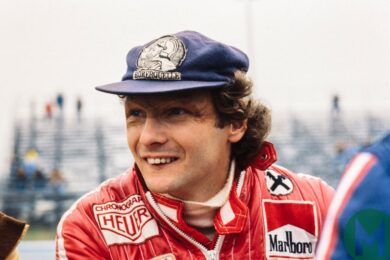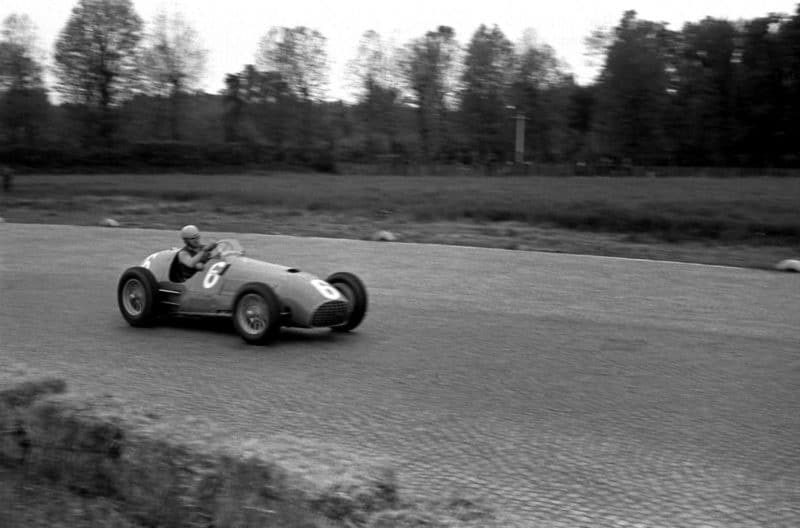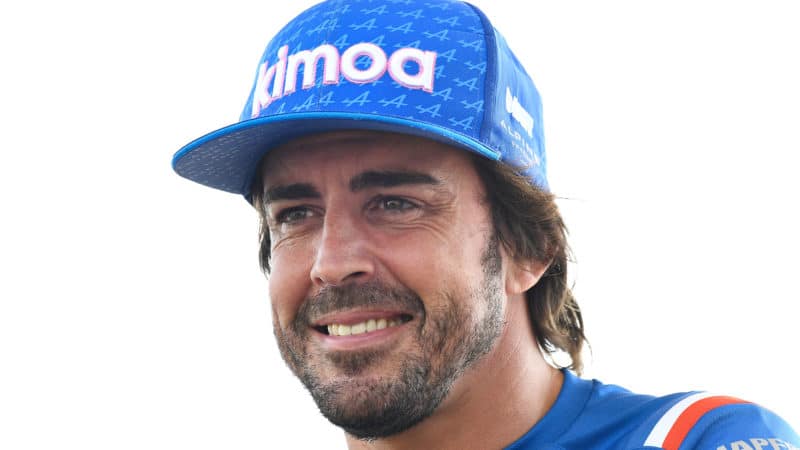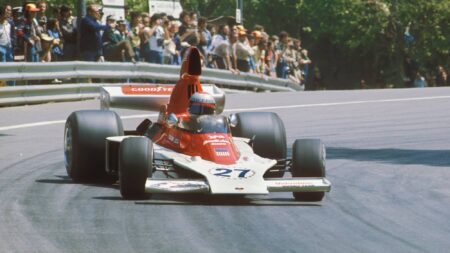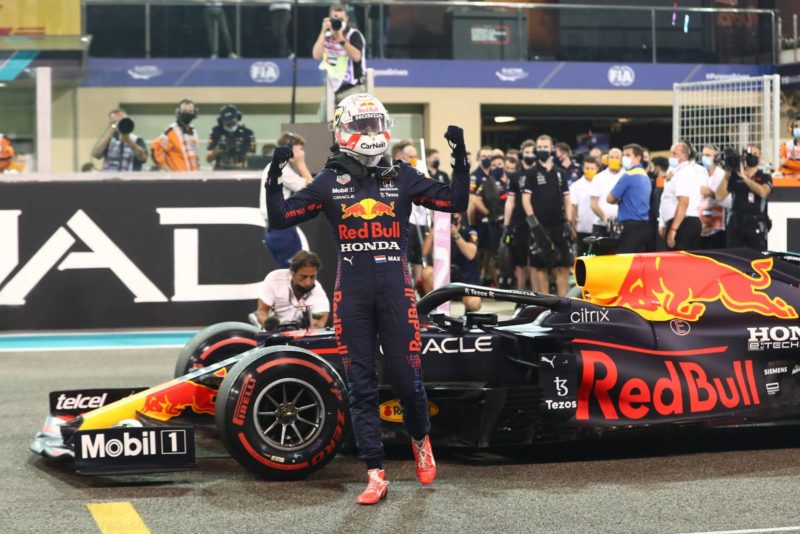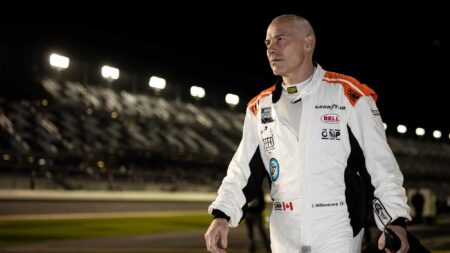Aptly for a country that still prided itself on fair play, Hawthorn’s victory was assured thanks to Stirling Moss’s sportsmanship. He stood up for his title rival who was threatened with disqualification after spinning in the Portuguese GP and allegedly turning his car around on track against the flow of cars. Moss said that the turn had been made on an escape road, and Hawthorn kept his second position and points. He won the title by a single point.
The floodgates were open (but not, famously, for Moss). Over the next two decades, a run of British world champions began with Graham Hill (1962 and 1968), then Jim Clark (1963 and 1965), John Surtees (1964), Jackie Stewart (1969, 1971 and 1973) and James Hunt (1976).
British teams McLaren and Williams were in crushing form in the 1980s, but their winning drivers heralded from elsewhere. It took Nigel Mansell to end the drought in 1992, in the all-conquering Williams FW14B, clinching the title with five rounds to spare. He was followed by Damon Hill in ’96, also at Williams.
There have been three British world champions in the 21st century, marked by Hamilton’s supremacy. He won his fist championship in 2008, and was then succeeded by Jenson Button the following year, with a Brawn team that had risen from the ashes of Honda.
Five years on and Hamilton, now at Mercedes, began a remarkable run of winning six championships in seven years.
Had it not been for the controversy of Abu Dhabi in 2021, he would have added another title to his collection. For now he remains level with Schumacher on seven world championships.
If Hamilton is to win again with Ferrari, he’ll have Britain’s latest world champion to beat: Lando Norris showed his pace and resilience in 2025, and will be looking to defend his title in 2026.
2. Germany
12 drivers’ world championships
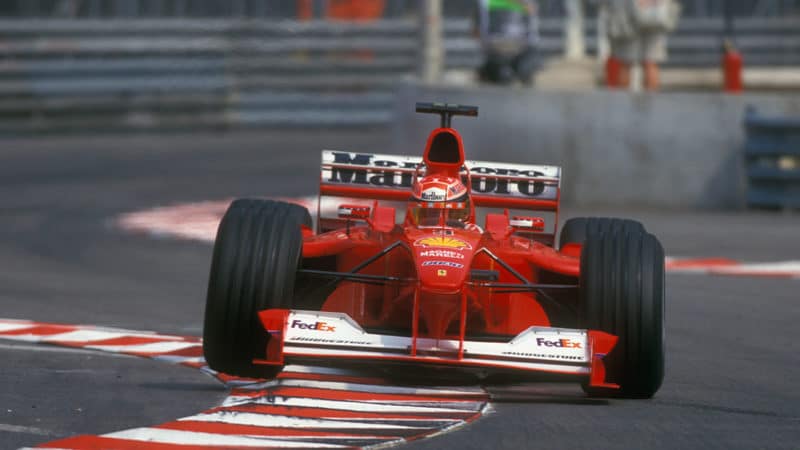
Michael Schumacher won his first two F1 titles at Benetton, then added five more at Ferrari
Grand Prix Photo
Despite a host of pre-war superstars, Germany didn’t have a drivers’ world champion until 1994, but some exceptional talents soon put the country on the Formula 1 map.
The arrival of Michael Schumacher shook up more than just the national championship table. His instinctive speed and ruthless competitiveness earned him two titles for Benetton in the mid-1990s before he set out on a mission that has proved impossible for many of the series’ greats.
Joining a Ferrari team that hadn’t won a championship since 1979, Schumacher — with team boss Jean Todt and technical director Ross Brawn — revived its fortunes and won five straight championships with the team from 2000. But for a broken leg at Silverstone in 1999, it could have been seven.
A first retirement dawned for Schumacher but his mantle was taken on by Sebastian Vettel, who won at Monza in his debut 2008 season and, by the end of 2010, was world champion. He would go on to win four consecutive titles but couldn’t imitate his hero, Schumacher, in winning more when he moved to Ferrari.
If it wasn’t for Lewis Hamilton, then Nico Rosberg might merit more than just a paragraph, but the son of world champion Keke Rosberg had the misfortune to race alongside one of the greatest drivers in history. That he beat the seven-time world champion to the title in 2016 is a mark of just how good he was, but the effort proved all-encompassing, and he retired rather than repeat that level of dedication for another year.
3. Brazil
8 world championships
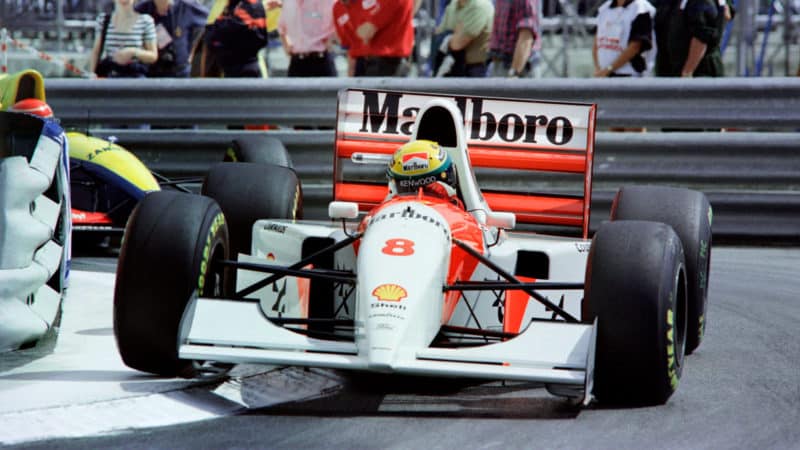
Ayrton Senna is Brazil’s most celebrated F1 champion
Getty Images
Brazil has a history of producing legendary drivers but it has now been three-and-a-half decades since one of them claimed an F1 title.
The first Brazilian champion was Emerson Fittipaldi in 1972, who won in the innovative Lotus 72 car which introduced the wedge shape to F1.
